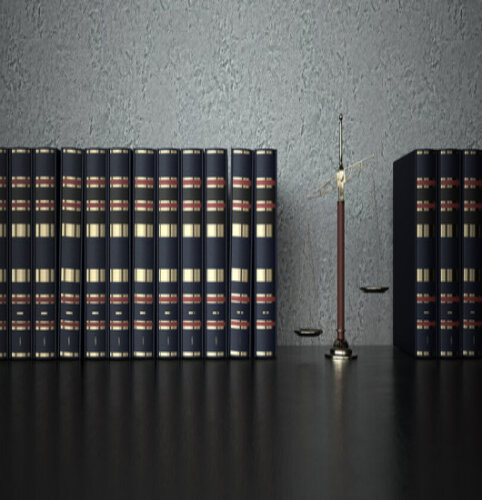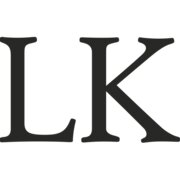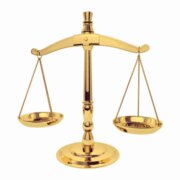Best ADR Mediation & Arbitration Lawyers in Dublin
Share your needs with us, get contacted by law firms.
Free. Takes 2 min.
List of the best lawyers in Dublin, Ireland
About ADR Mediation & Arbitration Law in Dublin, Ireland
Alternative Dispute Resolution (ADR) in Dublin, Ireland encompasses both mediation and arbitration as methods to resolve disputes outside of traditional courtroom settings. Mediation involves a neutral third-party mediator who facilitates discussions between disputing parties to help them reach a mutually acceptable agreement. Arbitration, on the other hand, involves an arbitrator who acts similarly to a judge by reviewing evidence and making binding decisions. Both ADR methods are designed to offer more flexible, confidential, and cost-effective solutions compared to litigation.
Why You May Need a Lawyer
There are several situations where legal advice in ADR Mediation & Arbitration can be beneficial:
- Complex Disputes: For disputes involving intricate legal or factual issues.
- Contractual Obligations: When a contract stipulates ADR for resolving any disputes.
- Enforceability: To ensure any agreed settlements or awards are legally binding and enforceable.
- Impartiality Concerns: If you suspect bias or unfair conduct by the mediator or arbitrator.
- Preparation & Representation: For comprehensive preparation and professional representation during mediation or arbitration sessions.
Local Laws Overview
The laws governing ADR Mediation & Arbitration in Dublin, Ireland are primarily outlined under the Arbitration Act 2010 and the Mediation Act 2017. The Arbitration Act aligns with the UNCITRAL Model Law, emphasizing the autonomy of the arbitration process and limiting court intervention. The Mediation Act promotes mediation, outlining the obligations of participating parties and emphasizing the confidentiality and voluntary nature of mediation.
Frequently Asked Questions
What is ADR?
ADR stands for Alternative Dispute Resolution, a set of practices designed to resolve disputes outside the courtroom, including mediation and arbitration.
How does mediation work?
Mediation involves a neutral third-party mediator who helps disputing parties reach a mutually acceptable agreement through facilitated discussions.
What is arbitration?
Arbitration is a process where a neutral arbitrator reviews evidence and arguments from disputing parties and makes a binding decision to resolve the dispute.
Is ADR legally binding in Dublin?
Mediation agreements can be made binding if incorporated into a legal contract. Arbitration decisions (awards) are binding and enforceable under the Arbitration Act 2010.
Do I need a lawyer for ADR?
While it's not mandatory, having a lawyer can help prepare your case, ensure your rights are protected, and provide representation during ADR sessions.
What types of disputes can ADR resolve?
ADR can resolve a wide range of disputes, including commercial, family, employment, consumer, and property disputes.
How long does an ADR process take?
The duration varies; mediation can be resolved in a few sessions, while arbitration might take several months depending on the complexity of the case.
How much does ADR cost?
Costs can vary widely. Mediation generally charges on an hourly basis while arbitration might involve fees for the arbitrator, legal representation, and administrative costs.
Are ADR proceedings confidential?
Yes, both mediation and arbitration proceedings are typically confidential, with information not disclosed to any third parties.
What happens if we can't reach an agreement in mediation?
If mediation fails, parties may proceed to arbitration or court litigation to resolve the dispute.
Additional Resources
Here are some useful resources and organizations related to ADR Mediation & Arbitration in Dublin, Ireland:
- The Mediators' Institute of Ireland (MII): Provides a directory of qualified mediators.
- The Chartered Institute of Arbitrators (CIArb) Ireland Branch: Offers educational resources and a list of qualified arbitrators.
- The Courts Service of Ireland: Information on the legal framework and support for ADR processes.
- Department of Justice: Provides guidelines and information on mediation and arbitration laws.
Next Steps
If you need legal assistance for ADR Mediation & Arbitration in Dublin, Ireland, consider the following steps:
- Identify Your Needs: Determine the nature and details of your dispute.
- Research: Look up qualified ADR professionals or law firms specializing in ADR in Dublin.
- Consult a Lawyer: Seek initial consultation to understand your options and legal standing.
- Choose Your ADR Method: Decide whether mediation or arbitration is more suitable for your case.
- Initiate the Process: Work with your lawyer to prepare and submit necessary documentation to start the ADR process.
Taking these steps can help ensure that your dispute is resolved effectively and efficiently, providing you with peace of mind and a resolution that respects the interests of all involved parties.
Lawzana helps you find the best lawyers and law firms in Dublin through a curated and pre-screened list of qualified legal professionals. Our platform offers rankings and detailed profiles of attorneys and law firms, allowing you to compare based on practice areas, including ADR Mediation & Arbitration , experience, and client feedback.
Each profile includes a description of the firm's areas of practice, client reviews, team members and partners, year of establishment, spoken languages, office locations, contact information, social media presence, and any published articles or resources. Most firms on our platform speak English and are experienced in both local and international legal matters.
Get a quote from top-rated law firms in Dublin, Ireland — quickly, securely, and without unnecessary hassle.
Disclaimer:
The information provided on this page is for general informational purposes only and does not constitute legal advice. While we strive to ensure the accuracy and relevance of the content, legal information may change over time, and interpretations of the law can vary. You should always consult with a qualified legal professional for advice specific to your situation.
We disclaim all liability for actions taken or not taken based on the content of this page. If you believe any information is incorrect or outdated, please contact us, and we will review and update it where appropriate.














